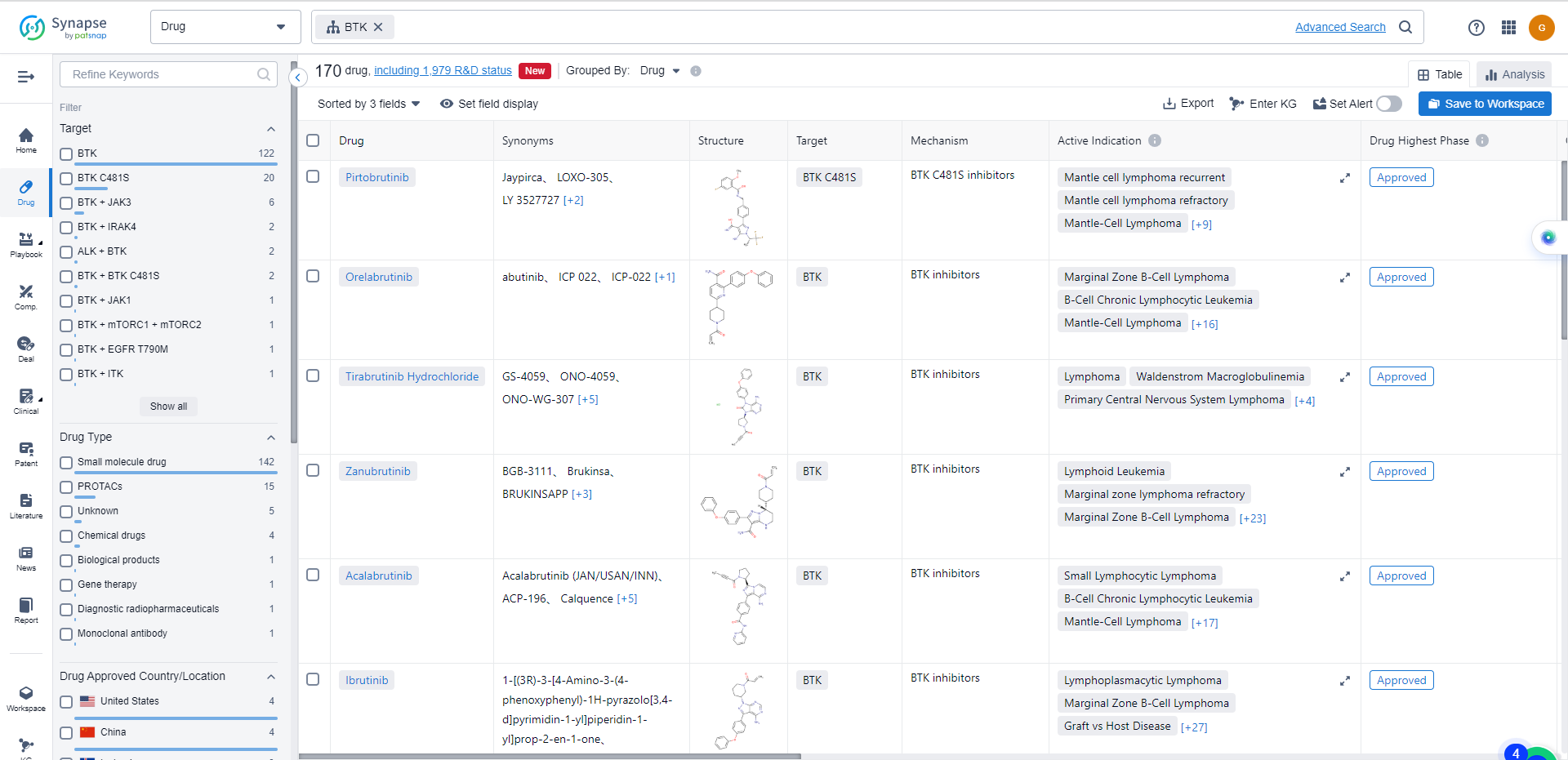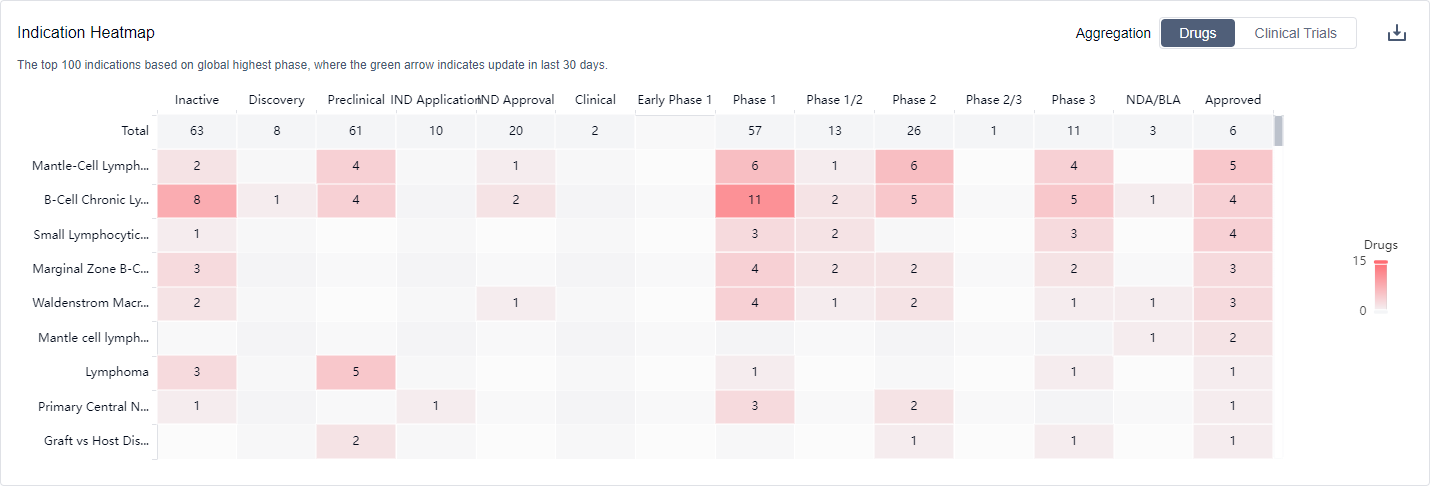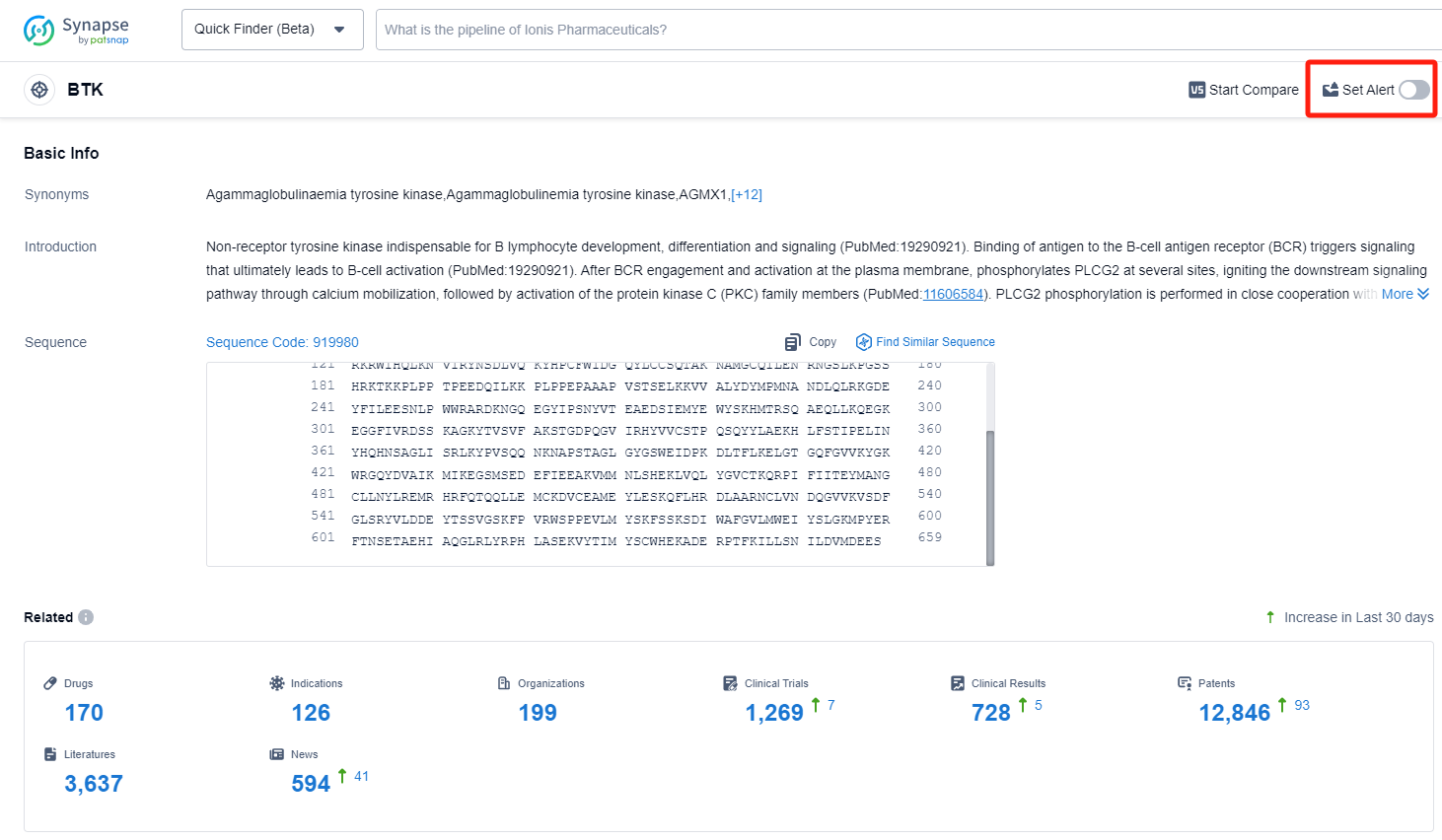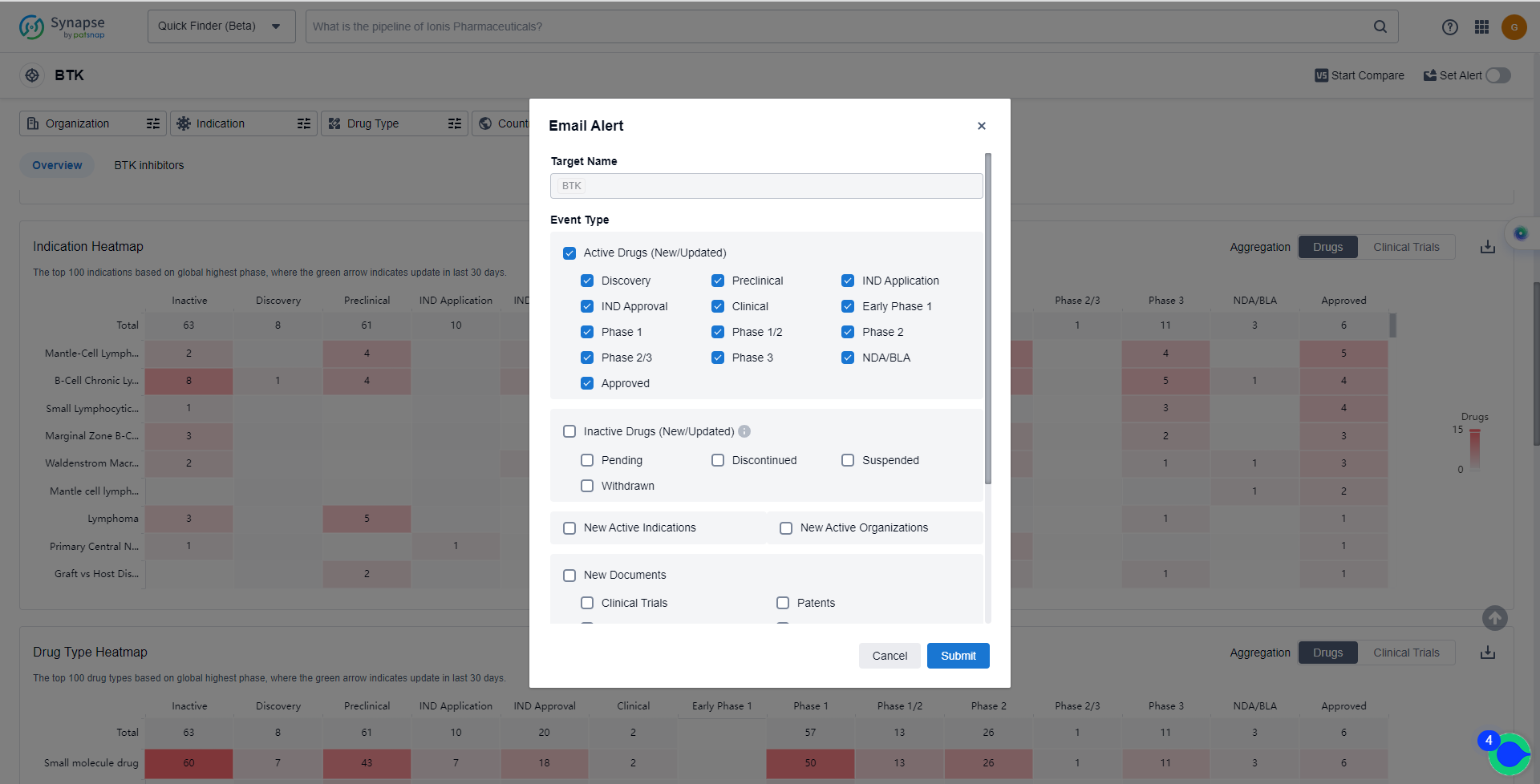What are BTK inhibitors and how do you quickly get the latest development progress?
BTK, or Bruton's tyrosine kinase, is an enzyme that plays a crucial role in the development and functioning of B cells, a type of white blood cell involved in the immune response. BTK is responsible for transmitting signals from the B cell receptor, which is essential for B cell activation, proliferation, and antibody production. Inhibiting BTK has emerged as a promising therapeutic strategy in various diseases, particularly B cell malignancies like chronic lymphocytic leukemia and B cell lymphomas. Targeting BTK with specific inhibitors has shown significant clinical benefits, making it an important target in the pharmaceutical industry for the development of novel therapies.
BTK inhibitors are a promising new type of drug for treating B-cell malignancies and autoimmune diseases. Ibrutinib is a first-in-class BTK inhibitor and has been approved in over 80 countries. The FDA has approved it for the treatment of CLL/SLL, WM, R/R MCL, R/R MZL, and R/R chronic graft versus host disease. The second-generation BTK inhibitor, acalabrutinib, has been approved by the FDA for CLL/SLL and R/R-MCL. Zebutinib is the first Chinese independently developed drug to be awarded the FDA's Fast Track, Accelerated Approval, Breakthrough Therapy, and Priority Review designation, and it has been approved by the FDA for R/R-MCL.
Although several BTK inhibitors have received FDA approval, there is still much work to be done: 1) The potential applications of BTK inhibitors need to be broadened, especially for diseases with suboptimal clinical responses; 2) Continuous treatment based on BTK inhibition may be outdated, with more and more research groups globally considering time-limited treatment strategies as combined strategies, such as combined with the Bcl-2 inhibitor Venetoclax, but the combined medication strategy should be carefully and rationally determined; 3) Head-to-head randomized clinical trials need to be conducted to directly compare the efficacy and safety of different BTK inhibitors in specific populations, especially in the elderly population, but possible cumulative and long-term toxicity should be taken into consideration; 4) The issue of drug resistance must be solved by developing more new drugs with different mechanisms, or by combining BTK inhibitors with other chemotherapy, antibodies, targeted drugs, or immunotherapies, which may pave the way for the treatment of B-cell lymphoma.
How do they work?
BTK inhibitors are a type of drug that target the Bruton's tyrosine kinase (BTK) enzyme. BTK is a protein found in immune cells, particularly B cells, which play a crucial role in the immune response. BTK inhibitors work by blocking the activity of this enzyme, thereby suppressing the signaling pathways involved in B cell activation and proliferation.
From a biomedical perspective, BTK inhibitors have been developed as a treatment for various diseases, particularly B cell malignancies such as chronic lymphocytic leukemia (CLL) and mantle cell lymphoma (MCL). By inhibiting BTK, these drugs can help slow down the growth and spread of cancer cells.
Additionally, BTK inhibitors have shown promising results in the treatment of autoimmune diseases like rheumatoid arthritis and systemic lupus erythematosus. By targeting BTK, these drugs can help modulate the abnormal immune response seen in these conditions and reduce inflammation.
It's important to note that BTK inhibitors are a specific class of drugs and not a single medication. Examples of BTK inhibitors include ibrutinib, acalabrutinib, and zanubrutinib. Each BTK inhibitor may have slight differences in terms of their chemical structure and pharmacokinetics, but they all share the common mechanism of inhibiting BTK.
List of BTK Inhibitors
The currently marketed BTK inhibitors include:
- Pirtobrutinib
- Orelabrutinib
- Tirabrutinib Hydrochloride
- Zanubrutinib
- Acalabrutinib
- Ibrutinib
- Evobrutinib
- Fenebrutinib
- Nemtabrutinib
- Remibrutinib
For more information, please click on the image below.
What are BTK inhibitors used for?
BTK inhibitors has emerged as a promising therapeutic strategy in various diseases, particularly B cell malignancies like chronic lymphocytic leukemia and B cell lymphomas. For more information, please click on the image below to log in and search.
How to obtain the latest development progress of BTK inhibitors?
In the Synapse database, you can keep abreast of the latest research and development advances of BTK inhibitors anywhere and anytime, daily or weekly, through the "Set Alert" function. Click on the image below to embark on a brand new journey of drug discovery!








